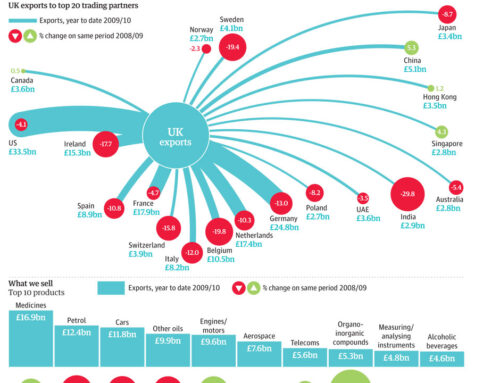As a small or medium sized business owner, you know that there’s a world of opportunity in today’s international marketplace. Small and medium sized enterprises (SMEs) are no longer disadvantaged by size or economy of scale. Fedex have drawn up a series of easy to follow tips to get you started.
Three Tips for Getting Logistics to Work for You
1. Understand how logistics can help your business
To help you get off to a flying start, let’s start at the very beginning.
INTERNATIONAL TRADE COURSE
2. Ask the right questions up front
By selecting the perfect transportation and logistics partner, you can reap a huge variety of business benefits. In order to achieve these benefits however, you first need to make sure you are asking the right questions and sharing the right information from the very beginning of the relationship.
Often you go to the first meeting armed with very tactical questions about prices, terms & conditions and transit times. You have to broadened your horizon by discussing the possibilities and taping into the knowledge and expertise that the logistic companies can offer, they can provide much more valuable strategic advice.
With this in mind, I’ve provided a handful of top line questions that I recommend you ask:
Run through your business objectives and ask questions like:
Describing your supply chain in detail can often spark additional value generation ideas and ensure a more accurate proposal.
Logistics isn’t just a tick list of costs at times. It’s about adding value.
A good transportation and logistics provider should see customer pain points which may previously have gone unidentified.
How can I prepare for the unexpected?
Be as prepared as possible so even unexpected events don’t interfere with your plans. Ask your transportation and logistics provider for information not only about service and reliability levels but ensure they have recovery and contingency plans, and they provide regular customer communications and emergency contact information. You need to be sure that your product will be properly taken care of no matter what happens.
What is different about your service offering?
Compare and contrast by ask your provider what’s unique about them. Making direct comparisons between providers can be tricky because of the different ways they all deliver their quotations. My advice would be to persevere – don’t be afraid to keep asking questions until you have the right information.
3. Knowledge is power: your transportation and logistics provider is a mine of information
Whether it’s the physical movement of goods, monitoring inventories in different places or securing access to new locations, there is a whole host of information in play throughout the supply chain. It’s up to your provider to put this information at your fingertips. Make sure you can see where your packages are at any time, what the costs of delays are and how quickly your goods will reach their destination. All of this ultimately equips you to better manage your inventories as well as your business.
These are exciting times for you and we are sure that if you ask the right questions of your transportation and logistics provider at the outset, you will soon be able to benefit from global trade and see your business grow from strength to strength. Nothing pleases us more than to be a part of your success.
 Fedex gives SME’s the benefit of their wide experience in the area of logistics and transportation
Fedex gives SME’s the benefit of their wide experience in the area of logistics and transportation
“Getting Logistics to Work for You” is based on an article by: Eduardo Lopez, Director, System for Engineering and Business Planning, FedEx Express

International Trade Course: This course is designed to provide the learners, and those operating within International Trade, an opportunity to broaden their understanding of global trade issues, and to gain a clear understanding of the processes and practicalities of International Trade.




